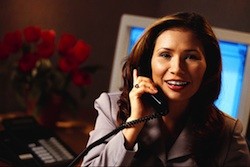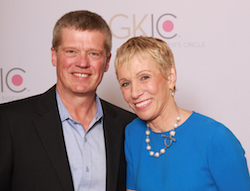No matter what business you’re in, you likely have competition from a discounter, national chain, huge franchise, or something along those lines. Regardless of the competition or the industry we can all learn from those who survive and are thriving in the face of this competition. This article is about one of those businesses who are beating the odds and what you can learn from them.
You might know that I own American Retail Supply (www.AmericanRetailSupply.com) We provide independent retailers with the things they need to run their stores – the bags they give you, displays, fixtures, marking equipment, point-of-sale computer system, etc.
Let me ask you a few questions. Think back 20 years, or even 10. How many independent drug stores do you see now versus 20 years ago? Pet stores? Department Stores? Office supply stores? Hardware stores? The list goes on and on, and the answer is the same: NOT MANY.
In those 20 years, while the market has shrunk dramatically, our sales at American Retail Supply have grown more than 10 times. But this month’s article is not about my business, it’s about one of our clients who has beaten the odds and huge competition from the “BIG GUYS” and not only survived, but thrived.
McLendon Hardware opened in 1926. Today they have 7 stores and continue to grow while Home Depot and Lowes blanket the market area with new stores. At the same time that the entry of these retail giants forced the biggest regional hardware chain into bankruptcy, McLendon’s continues to thrive and open new stores.
How do they do it? How does McLendon’s Hardware continue to grow, survive, and thrive while the old leader in the market has gone bankrupt? I interviewed the president of McLendon Hardware, Mike McLendon, a few years ago to find their secrets, and you can use these same secrets to thrive in your market place. Throughout this article I’ll use italics to ask you questions about using the ideas previously discussed in your business.
Find a Niche and Fill It
McLendon’s niche hasn’t changed in 87 years… Their niche – SERVICE, SELECTION, and LOCATION.
McLendon says they see themselves as being more family oriented than their competition. That makes sense coming from an 87 year-old family business. McLendon says, “People come to a hardware store because they have a problem, and they want to be able to go home and fix the problem themselves. And they want to be able to understand something about the problem. That’s one of the reasons we stay in business. People think we can help them with their problem, they get the solution, go home and fix it, and they’re happy.”
Seems kind of simple, right? Give your niche what they want. McLendon’s wide breadth of products and friendly, helpful staff, insures that customers go home with solutions that make them happy!
What makes you different? As my mentor Dan Kennedy says, “Why should someone do business with you versus every other option in your business category?”
I shop at McLendon’s Hardware. Here are just a few examples of their selection and great service.
I had a chip in my bathroom sink that I wanted to repair. I went to the national chain about a half mile from my house. They had one color – white. My sink is cream. I drove 5 more miles to McLendon’s. They had the exact color match and 50 other colors!
What do you offer that your clients can’t get from the competition?
I needed a Philips head screw driver bit for my power drill. I went down to McLendon’s, and like always quickly found someone to help me. She suggested a bit and then said, “Here, try this one also. We just got them in. You can have it for free. Let me know what you think of it.” Are you kidding me?!?!
It really is the little things. What can you do to surprise and delight your clients with the little things?
I traced a leak in my hot water tank to the flexible copper tubing water inlet hose. I took the old hose to McLendon’s where again someone was ready to help me. Instead of just handing me the hose and letting me go, the sales person took an extra 30 seconds to tell me exactly how to install the hose. His information made the job much easier and the repair will last longer.
What information, education, expert advice can you give to you clients that your competition doesn’t?
I’ve learned my lesson. I now drive right past the national chain and go a few more miles to McLendon every time. For me, McLendon is right on the mark. When I go to other hardware stores, because it’s convenient, I often leave discouraged. When I go to McLendon’s I go home with the solution to my problem. McLendon tells me he often hears customers saying, “I should have just come here in the first place.”
What can you do to create loyal customers who, even if more convenient, don’t even think about going somewhere else?
Finding Good People
With the national chains coming into town, finding and keeping god employees has become a bigger challenge. The big guys can often afford to pay more. But McLendon’s relies on great help to send customers home with solutions. How do they do that?
McLendon’s attracts employees who want to be more than just a clerk. Trades people are attracted to McLendon’s. They have a tool guy who was a contractor and didn’t want to be a contractor anymore. He likes his job, he likes the people, and he gets the regular hours he wanted.
A journeyman electrician hurt his back and couldn’t work as an electrician, so now he works at McLendon’s.
The new store manager at the Kent store started at McLendon’s when he was in high school. McLendon finds that people may leave the company to go to work for a new competitor, but they often come back to McLendon’s.
What can you do to attract the kind of employees you want, and will give your customers Out-Nordstrom Nordstrom Customer Service, without having to pay premium wages?
There’s more to this article, but you’re going to have to wait until part 2 of this series next month when I reveal the six core strategies McLendon’s is using to not only survive in the shadow of the retail giants, but thrive. Stay tuned!
See how the Out-Nordstrom Nordstrom Customer Service System can help you
or








